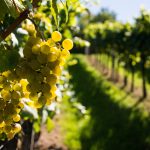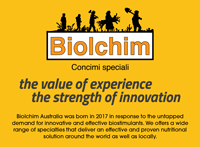The Australian Society of Viticulture and Oenology (ASVO) was a proud sponsor of both the ‘Fresh Science’ sessions and the ‘In the Wine Light’ student forum, held during the 17th Australian Wine Industry Technical Conference (AWITC) in Adelaide.
“The ASVO is committed to supporting the rich talent in viticulture and wine research,” said ASVO president Dr Anthony Robinson. “The ASVO supports early-career researchers to share their stories of discovery and provides opportunities for sharing professional knowledge, skills and attitudes in viticulture and oenology”.
One of the most popular sessions at the technical conference are the Fresh Science sessions that showcase research from up-and-coming researchers. Two prizes were awarded for the best research presentations. Caroline Bartel, a Scientist at the Australian Wine Research Institute (AWRI) was awarded for her research on Brettanomyces bruxellensis becoming more tolerant to sulphur dioxide (SO2). Bartel shared results that demonstrate the spoilage yeast B. bruxellensis has the potential to develop SO2 tolerance in wine and suggests that the wine industry should carefully consider alternative strategies for controlling B. bruxellensis.
The second award went to Dr Harley Smith, a team leader in the Wine Grapes and Horticulture Group at CSIRO Agriculture and Food. Smith said that the majority of commercial rootstocks currently available for planting were not optimised for Australian conditions and potentially had insufficient resistance to phylloxera and root knot nematode. Smith said that “the goal of the CSIRO Rootstock Breeding Team is to develop elite rootstocks with new pedigrees in order to provide effective resistance to phylloxera and root knot nematode”.
The student forum, In the Wine Light’ was a rapid-fire challenge which saw twelve post graduate students present their research on one slide in just three minutes. To add to the challenge, each student was appraised by an esteemed judging panel and also by the audience which included many of the international speakers from the AWITC.
The winner of the judges’ prize was Mango Parker, from the AWRI. Parker captivated the audience with her ‘tongue in cheek’ delivery “we are wasting the package the grape juice comes in” she said. Parker presented her innovative research in utilising flavour compounds from normally discarded grape skins to enhance wine flavour and quality.
The people’s choice was awarded to Jin-Chen Li, a PhD scholar from the University of Adelaide. Li charmed the audience with her presentation on potential microbial solutions to eliminate 3-isobutyl-2-methoxypyrazine (IBMP) in wine. IBMP is a pungent aroma compound reminiscent of green capsicum, this aroma can detract from certain wines grown in cool regions. Li’s work shows that some naturally occurring microbes may provide a solution to this issue.
Winners received a $500 cash prize, complimentary membership to the Society and an ASVO scarf.
The 2019 winners are as follows:
AWITC Fresh Science
Caroline Bartel, The Australian Wine Research Institute
Is Brettanomyces bruxellensis becoming more SO2 tolerant in industry?
Dr Harley Smith, CSIRO
Developing next generation grapevine rootstocks with long-term resistance to phylloxera and root knot nematode
Student Forum In the wine light
Mango Parker, The Australian Wine Research Institute
Phenolic-free glycosides from grape marc can increase wine flavour
People’s Choice Jin-Chen Li, University of Adelaide
Microbial solution to eliminate 3-isobutyl-2-methoxypyrazine in wine





















